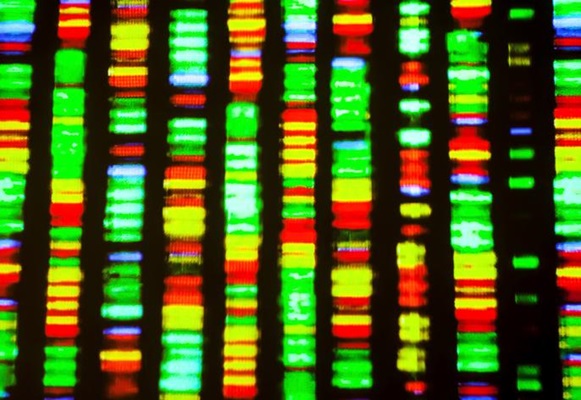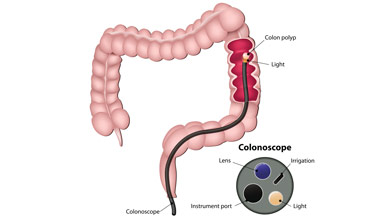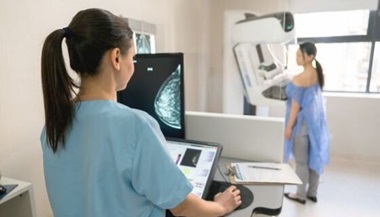Health Ask The Expert
Beyond BRCA: Get Screened for These Additional Genetic Mutations

Featured Expert:
Have you or a family member been screened for the BRCA gene mutations and come up negative? If you still suspect a family connection due to a history of breast or other cancers, or an occurrence of breast cancer before age 50, there are reasons to continue to pursue answers.
“Ten percent of all breast cancers are known to be hereditary,” says David Euhus, director of breast surgery at Johns Hopkins. “But we also know from identical twin studies that up to 25 percent have some familial component.” That means an additional 15 percent of all breast cancers may be hereditary, but we don’t yet know the genetic mutations involved.
Most hereditary breast cancers that we do currently recognize are caused by a mutation in the BRCA1 or BRCA2 genes. These genes normally help suppress tumor growth, but when certain parts of the gene sequence are incorrect, tumors are more likely to form.
But in the last several years, some new genetic mutations associated with an increased risk of breast cancer have been identified. With proper genetic counseling, you might now be able to get answers that weren’t available just a few years ago.
“Each family is different,” says Euhus. “Each has a unique impact from other genes.” That means a genetic mutation known for increasing the chance of breast cancer might not be of concern unless there’s another set of mutations in another set of genes, meaning the mutations listed below are only part of the picture.
Euhus looks at the whole family history and, at times, certain physical characteristics. He outlines some of the more common mutations — with one big caveat. “Each of these is just a fraction of a percent of the total breast cancers,” he says. Still, if cancer runs in the family, it may help to look for a genetic clue. Some additional genetic mutations that may contribute to cancer risk include:
- CHEK2: This is one cause of Li-Fraumeni syndrome, which conveys a slightly greater risk of breast cancer, usually estrogen or progesterone receptor-positive. There may be incidences of thyroid, kidney, colorectal or prostate cancer in the family.
- PALB2: This is sometimes known as BRCA3. There is no strong association with ovarian cancer, although otherwise family history appears very similar to those with the BRCA2 mutation.People with BRCA2 or PALB2 mutations may be at greater risk for certain cancers if they drink alcohol.
- PTEN: A mutation in this gene causes Cowden syndrome, and it raises the risk for breast, uterine, gastrointestinal and thyroid cancers. People with Cowden syndrome are known to have large heads in proportion to their height as well as noncancerous tumors of the skin and other organs.
- ATM: When inherited from only one parent, this mutation sometimes increases breast cancer risk. When inherited from both parents, it causes a congenital disease called ataxia-telangiectasia and increases the risk of leukemia or lymphoma.
- TP53: A mutation in this gene causes Li-Fraumeni syndrome and slightly increases the risk of estrogen, progesterone and HER2/neu-positive, or triple-positive, breast cancers before age 35.
- CDH1: This mutation can cause hereditary diffuse gastric cancer syndrome, which significantly raises the risk for stomach cancer and moderately raises the risk for a type of breast cancer called lobular carcinoma.
- STK11: A mutation in this gene causes Peutz-Jeghers syndrome, which raises the risk of pancreatic, breast and other cancers. Sometimes, this gene mutates spontaneously, meaning only one person in a family may have the mutation. People with Peutz-Jeghers syndrome may have many chronic mouth and lip lesions or sores. As children, they may have dark blue or brown moles or freckles on their fingers and mucous membranes, including the lips, nostrils, eyes and anus.
What to Do If You Suspect Familial Breast Cancer
Get genetic counseling.
Right now, it can be tough to know the differences among genetic information that is significant, insignificant or simply not yet understood. You need someone who can ask the right questions about your family history and help you interpret the test results. Always work with a genetic counselor, who can ask questions, provide guidance and order the right test panel for your family situation.
Re-test.
More cancer-causing mutations or mutations combined with environmental factors are known today compared to even a few years ago.
Consult a breast surgeon.
If your genetic counseling and testing process yields any results that leave you concerned, a breast surgeon may be able to help you convert the tangle of statistics into an action plan for what to do next.




